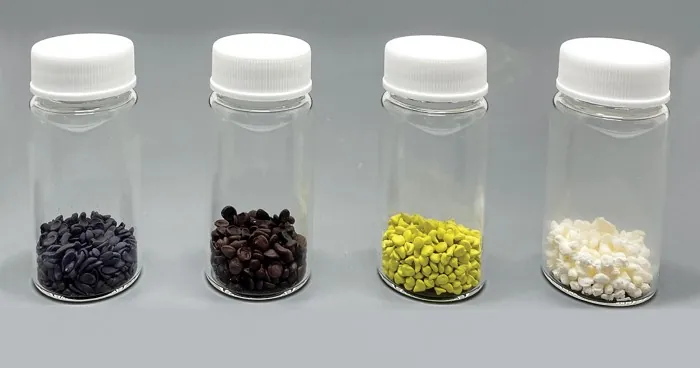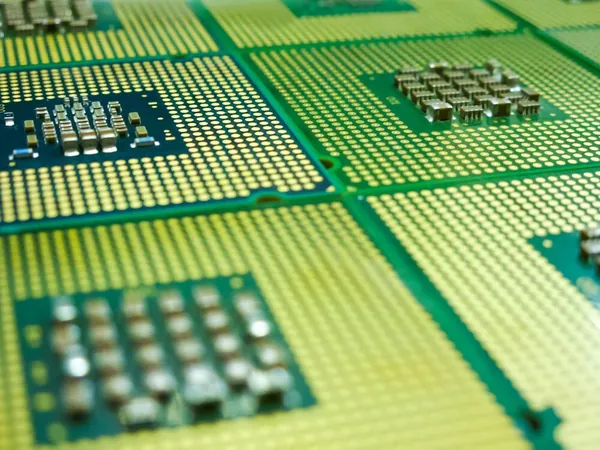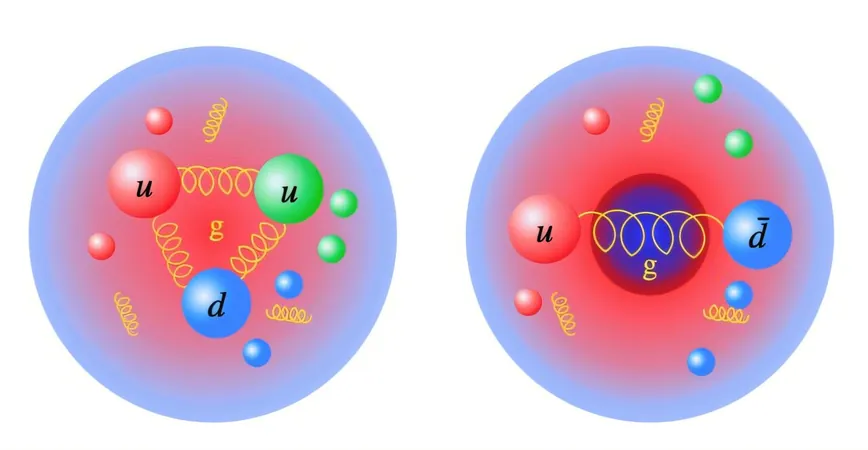
Pascal's Revolutionary Technology Aims to Slash Climate Impact of Heating and Cooling!
2024-11-08
Author: Emily
In a groundbreaking move for sustainable energy, a start-up named Pascal emerges from a Harvard University chemistry lab with an innovative solution designed to reduce climate impacts from traditional heating and cooling systems.
Unveiling the Magic of Heat Pumps
Heat pumps possess a unique ability to transfer heat, extracting warmth from frigid winter air or channeling cold from a grocery store freezer during a scorching summer day. Currently, they are integral components in millions of homes and businesses, including air conditioning units and refrigerators. The efficiency of heat pumps is significant; it's far more energy-efficient to move existing heat than to generate new heat, making these systems essential tools in the fight against climate change.
However, a severe drawback remains. Many existing heat pumps utilize fluorocarbon gases as refrigerants, which leak into the atmosphere and contribute to global warming at rates hundreds to thousands of times that of carbon dioxide. The Intergovernmental Panel on Climate Change (IPCC) highlights that these refrigerants account for roughly 3% of human-induced global warming—outpacing emissions from the entire aviation sector.
A Game-Changer: Solid Refrigerants
Pascal aims to change this narrative. The company has developed a novel heat pump system that employs solid refrigerants that do not escape into the atmosphere, thereby mitigating their environmental impact. Unlike traditional heat pumps that depend on gas compression and evaporation, Pascal's technology facilitates heat transfer without the risk of leaks.
CEO and co-founder Adam Slavney explains, "The absence of vapor compression in our design has the potential to double the efficiency of current systems, reducing energy waste significantly."
In a significant boost to its mission, Pascal recently secured $8 million in funding from notable venture capital firms, including Engine Ventures and Khosla Ventures. This capital will enable them to transition from bench-scale prototypes to developing a 1 kW working model—capable of producing double the cooling power of an average domestic refrigerator.
Innovative Science Behind the Technology
At the heart of Pascal's approach are solid refrigerants composed of layers just a few molecules thick. These consist of positively charged fatty acid chains alongside negatively charged scaffolds. When pressure is applied, the crystalline structure of the fatty acid layers temporarily transforms, allowing for heat absorption. Conversely, once the pressure is released, the layers solidify again, effectively releasing absorbed heat.
This unique mechanism allows Pascal's refrigerants to operate within market-competitive pressures—below 1,000 kPa—similar to those used in conventional air conditioning units today.
While Pascal currently employs metal halide perovskites as part of its innovative structure, the team is investigating alternative materials that could enhance the system's compatibility with other components and broaden its operational temperature range.
Changing Consumer Perspectives
Slavney recognizes that many consumers purchasing heating and cooling systems may not prioritize environmental concerns. Thus, the company emphasizes the financial benefits of their technology. "It's essential to prove that our product will effectively reduce electricity bills," he asserts, hinting at a potential revolution in both the economic and ecological facets of climate control.
Pascal’s pioneering efforts symbolize a crucial stride towards sustainable energy solutions. As the climate crisis becomes increasingly urgent, innovations like these could pave the way for a future where the benefits of energy efficient heating and cooling are accessible to all—without the environmental toll.
Watch out for Pascal as they work towards transforming the HVAC industry for good!









 Brasil (PT)
Brasil (PT)
 Canada (EN)
Canada (EN)
 Chile (ES)
Chile (ES)
 España (ES)
España (ES)
 France (FR)
France (FR)
 Hong Kong (EN)
Hong Kong (EN)
 Italia (IT)
Italia (IT)
 日本 (JA)
日本 (JA)
 Magyarország (HU)
Magyarország (HU)
 Norge (NO)
Norge (NO)
 Polska (PL)
Polska (PL)
 Schweiz (DE)
Schweiz (DE)
 Singapore (EN)
Singapore (EN)
 Sverige (SV)
Sverige (SV)
 Suomi (FI)
Suomi (FI)
 Türkiye (TR)
Türkiye (TR)